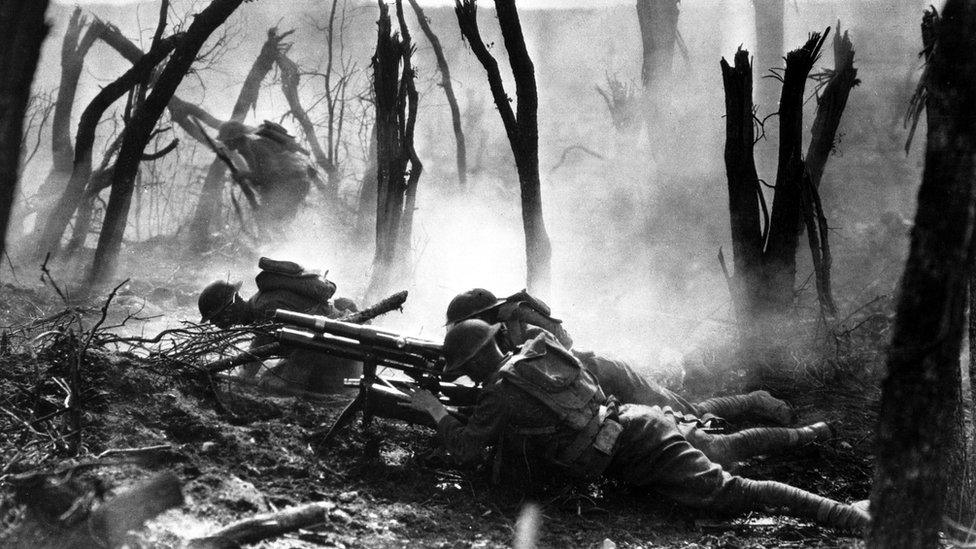Mystery of WWI memorial 'solved' in Birmingham
- Published
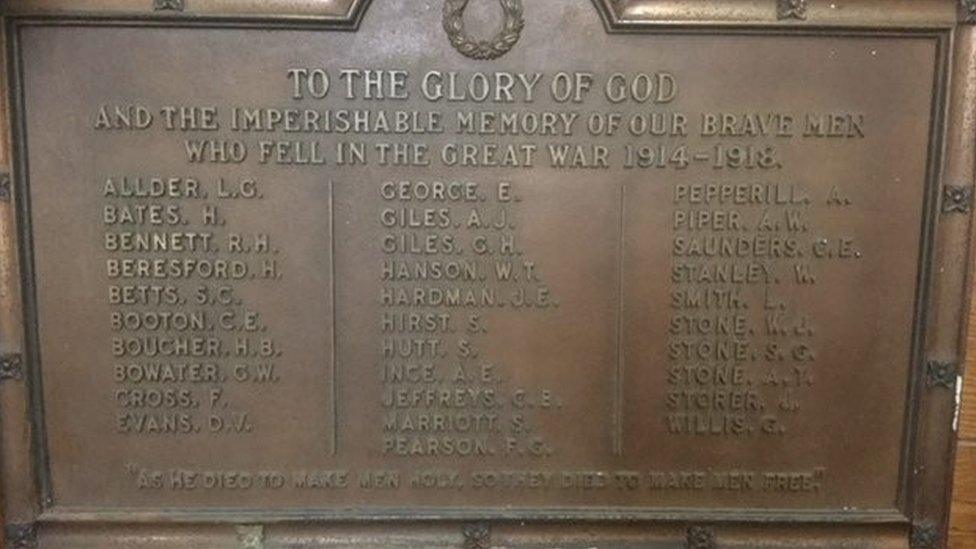
The mystery plaque was brought to a church five years ago, reportedly by a stranger who found it in a skip
The mystery of a World War One memorial reportedly found in a skip appears to have been solved.
The plaque commemorating 31 fallen soldiers had been languishing in a Birmingham church, with little clue as to its journey from an unknown home.
Amateur sleuths, though, think it may have originated from another Birmingham church demolished in the 1950s.
But it is still unclear how it ended up on the other side of the city more than half a century later.
Rob Rolfe was charged with solving the mystery when he learned from a pastor at a church near his own that there was an unidentified memorial kept in the organ loft.
It was unknown, he said, how it came to arrive at Banners Gate Community Church in Sutton Coldfield, save for talk of a stranger taking it there five years ago, having reportedly found it in a skip.
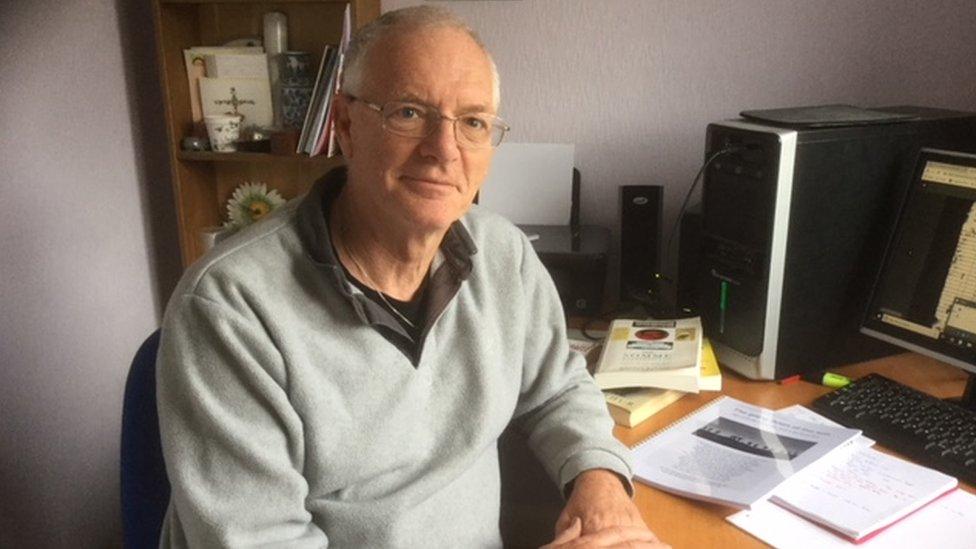
Rob Rolfe says he hopes a permanent new home can be found for the plaque
Mr Rolfe has spent October trying to discover the plaque's origin, finding those named on it to have come from the Balsall Heath and Moseley areas of Birmingham.
But despite consulting with local history groups, the search came to a dead end.
In a breakthrough, and perhaps consistent with the skip story, Mr Rolfe believes the plaque is from Moseley Road Congregational Church, which was demolished in the middle of the last century.
The new information came from University of Birmingham student Andy Vail, who had been researching the city's free churches during World War One for his post-graduate history dissertation.
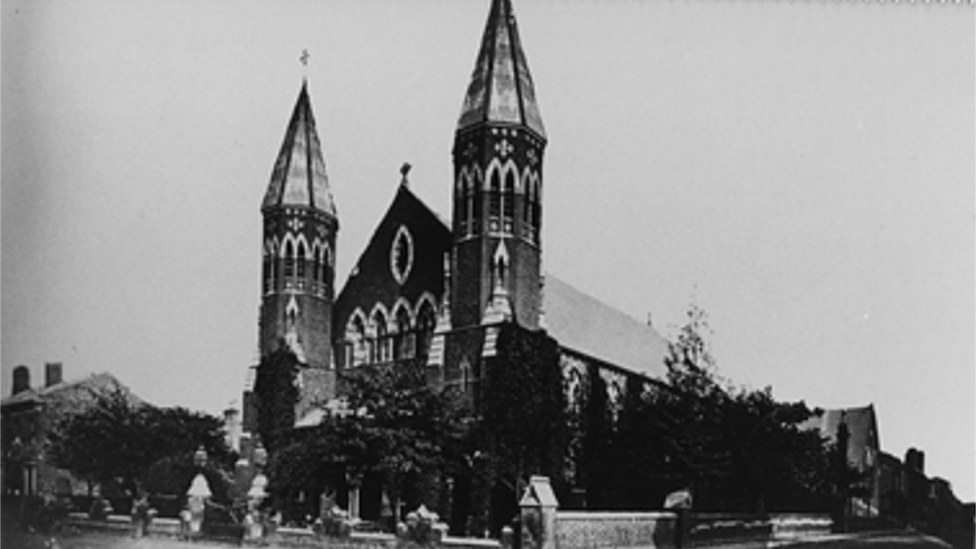
Moseley Road Congregational Church was demolished in the 1950s, after being damaged during World War Two, Mr Rolfe said
Mr Vail found names on the plaque matched a list in Moseley Road Congregational Magazine from 1920.
He said that, and the style of the plaque, meant he was "99% certain" the Moseley site was the memorial's original home, adding: "It is nice to know all those hours spent in the library weren't for nothing."
The plaque's story, until the arrival in Banners Gate, remains unknown.
"We still do not know where it has been for the last 60 years," Mr Rolfe said.
"It is still a mystery, but we are a bit closer and certainly intend the soldiers are remembered and the memorial, in the long term, finds a home."
- Published6 October 2018
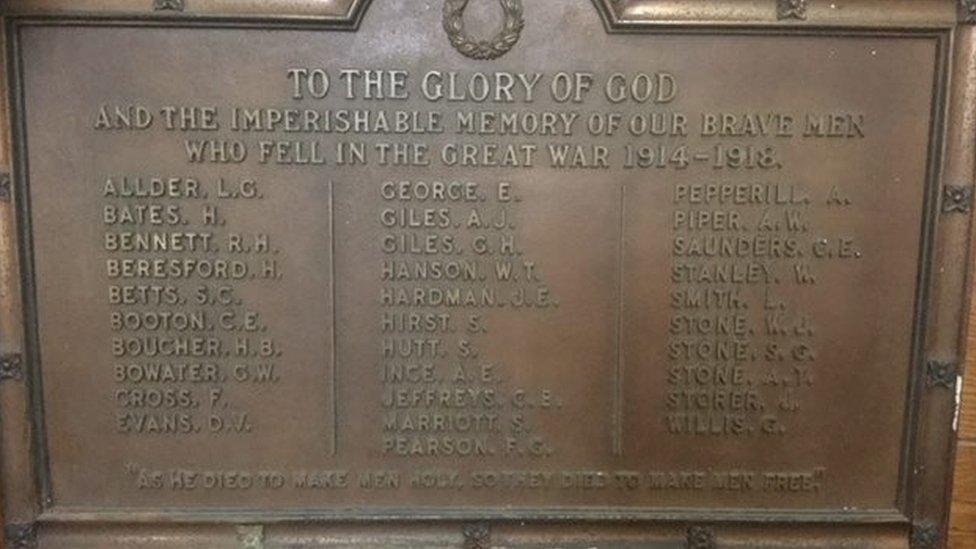
- Published5 October 2018
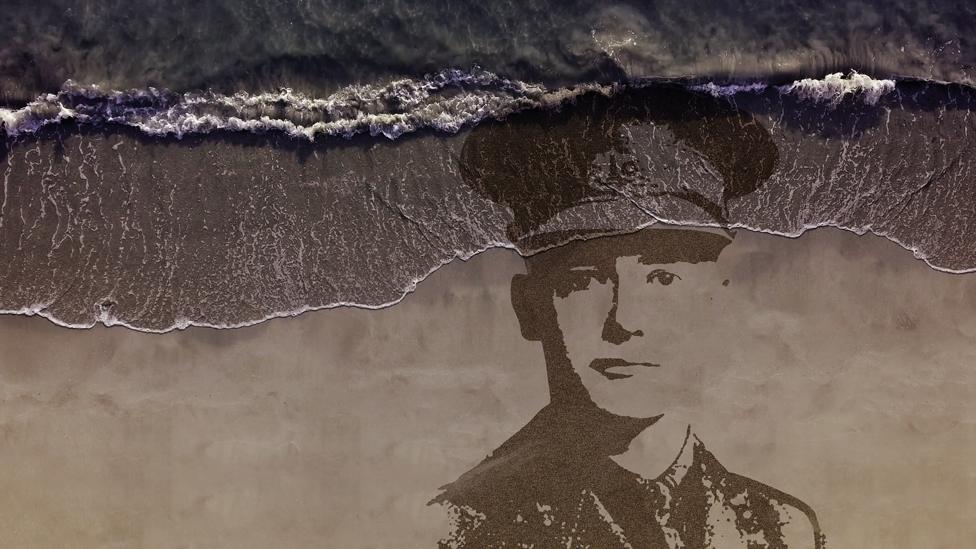
- Published3 October 2018

- Published5 October 2018
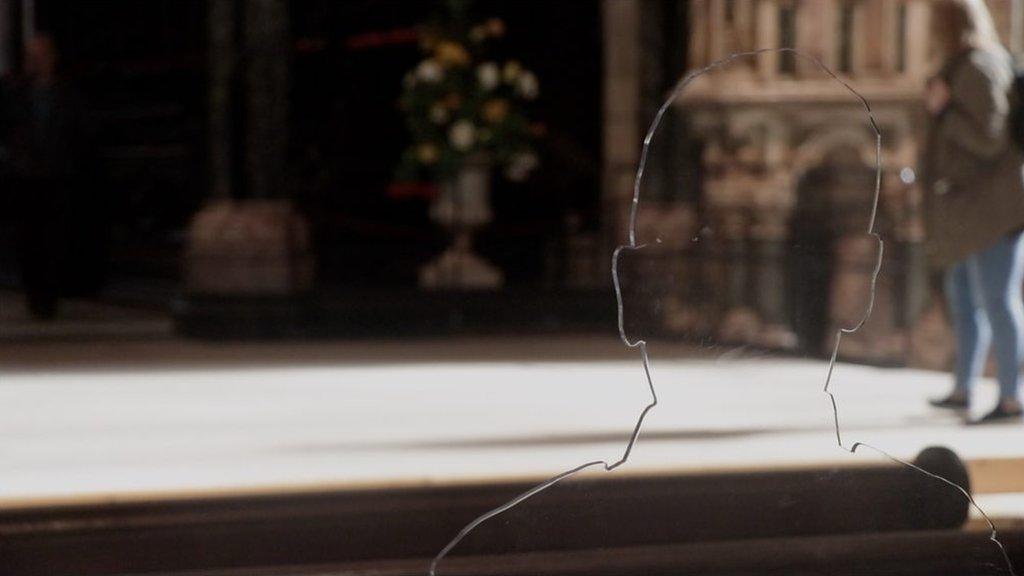
- Published29 November 2017
